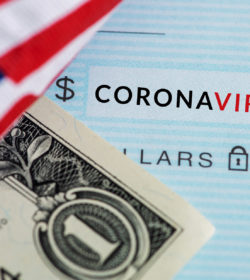As the public’s demand for information about the pandemic remains high, criminals are seeking to take advantage, turning common information searches into information theft. Be aware of the latest activities and make sure you are being cautious. You will want to share this with your staff as well, especially if they are online with work computers.
Outbreak maps: Malicious actors have begun spreading malware through online maps claiming to track the impact of coronavirus. As users visit the sites or click the links, they are exposing usernames, passwords, credit card numbers, browsing history, or other nonpublic personal information that is then exploited by the attackers or sold to other criminals on the dark web.
Email campaigns: Criminals are also leveraging common forms of fraud like spam email campaigns, using infected attachments or downloads to gather information.
Charitable giving: Scammers are claiming to need funds for charitable contributions or expenses related to the virus. Be on guard for sudden or urgent requests for funds – protect yourself from falling victim to such schemes.
It’s important to stay vigilant during these uncertain times. Don’t click on unknown links and avoid visiting new websites that could be operated by criminals.










